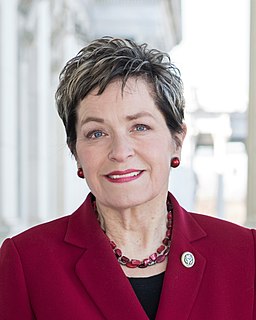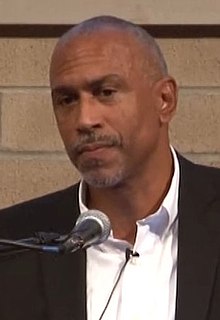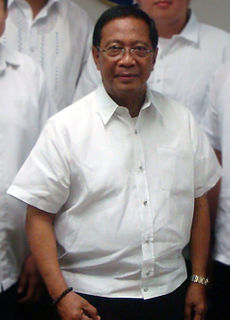A Quote by Sasha Abramsky
Today there are a huge number of think tanks working on poverty-related issues; there are books written on the topic; and university centers being created to study poverty. But, at the same time, the media has a terribly hard time with this issue; it's very hard to convince editors and publishers to devote resources to complex investigations of the lives of America's poor. And, as a result, too often poverty is portrayed in stereotypes, in sound bites, in a few pat images rather than in its full Technicolor complexity and diversity.
Quote Topics
America
Being
Bites
Books
Centers
Complex
Complexity
Convince
Created
Devote
Diversity
Editors
Few
Full
Hard
Hard Time
Huge
Images
Investigations
Issue
Issues
Lives
Media
Number
Often
Pat
Poor
Portrayed
Poverty
Publishers
Rather
Related
Resources
Result
Same
Same Time
Sound
Sound Bite
Sound Bites
Stereotypes
Study
Tanks
Terribly
Than
Think
Time
Today
Too
Topic
University
Very
Working
Written
Related Quotes
One of the most durable successes of the war on poverty was to dramatically reduce the number of elderly poor in America. That's still true today. But, by contrast, child poverty has shot up over the last few years: A decade ago, about 16 percent of children in America were poor - which is a shockingly high percentage. But it's not as shocking as today, when we see that 22 percent of kids live in poverty.
There is little favorable to be said about poverty, but it was often an incubator of true friendship. Many people will appear to befriend you when you are wealthy, but precious few will do the same when you are poor. If wealth is a magnet, poverty is a kind of repellent. Yet, poverty often brings out the true generosity in others.
Too often the media assumes that "poverty" is an African American or a Latino issue. Of course, that's nonsense. While a higher percentage of the African American and Latino population does live in poverty as compared to the white population, when overall numbers are looked at, it is clear that people of all races, ethnicities, and colors, are represented amongst America's poor.
The first issue that compelled me was a very strange split between India being highly development scientifically (we were the third biggest scientific manpower in the world then) and yet at the same time struggling with amazing poverty. The linear equation that says that modern science equals progress and the reduction of poverty did not apply to India. It wasn't working.
The origins of these [schooling] federal policies were tied to President Johnson's war on poverty. Supplemental funds were sent to school districts serving poor children to compensate for issues related to poverty. Since the enactment of NCLB, the focus on mitigating poverty has been replaced by a focus on accountability as measured by test scores.
The reliance on stereotypes is in part the result of a structural problem within the media. Most newspapers have a business beat, with a number of highly trained journalists who know how to cover companies, trading, the markets and so on. But almost none have labor reporters anymore, and to my knowledge, none have full-time poverty-beat correspondents. And all of this helps to render invisible the lives and the life stories of tens of millions of Americans.
Seek the simplest in all things, in food, clothing, without being ashamed of poverty. For a great part of the world lives in poverty. Do not say, "I am the son of a rich man. It is shameful for me to be in poverty." Christ, your Heavenly Father, Who gave birth to you in the baptistery, is not in worldly riches. Rather he walked in poverty and had nowhere to lay His head.
There's 6 million people living in poverty today, more than when Barack Obama got elected. 6.5 million people are working part-time, most of whom want to work full-time. We've created rules and taxes on top of every aspiration of people, and the net result is we're not growing fast, income is not growing.






























